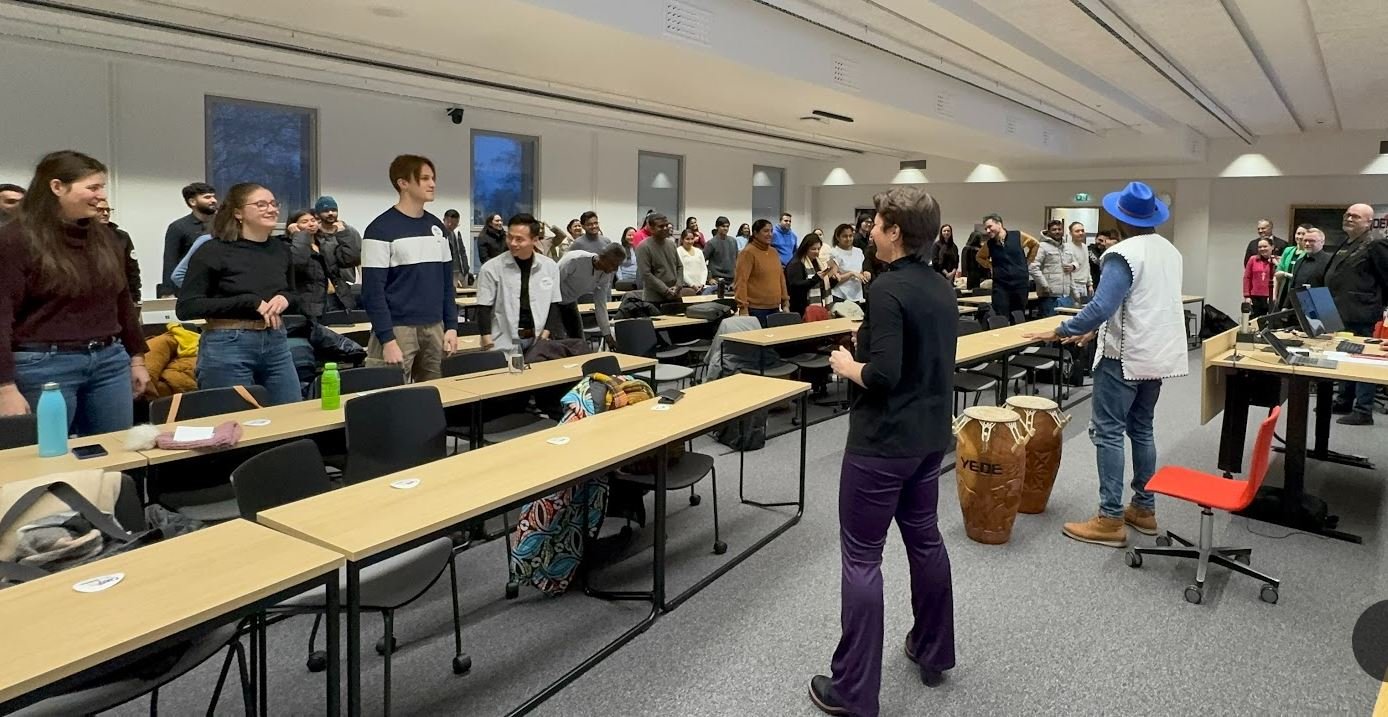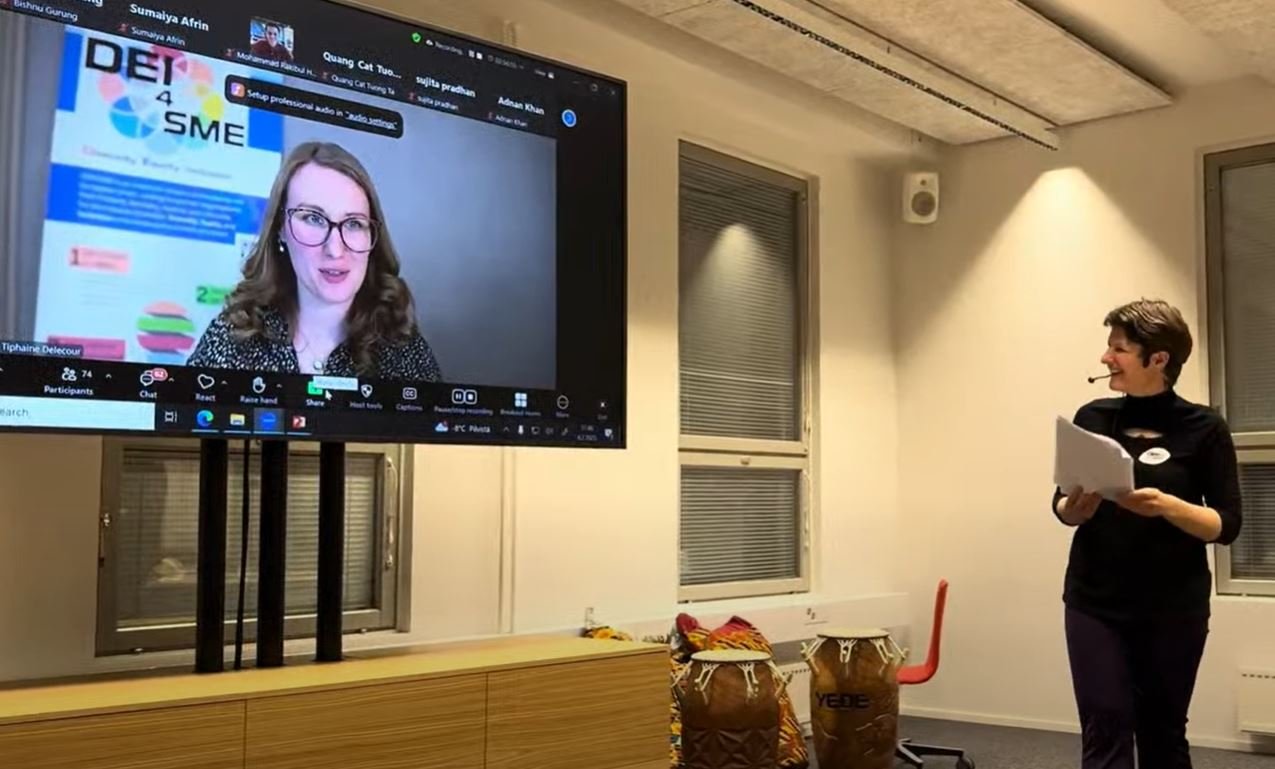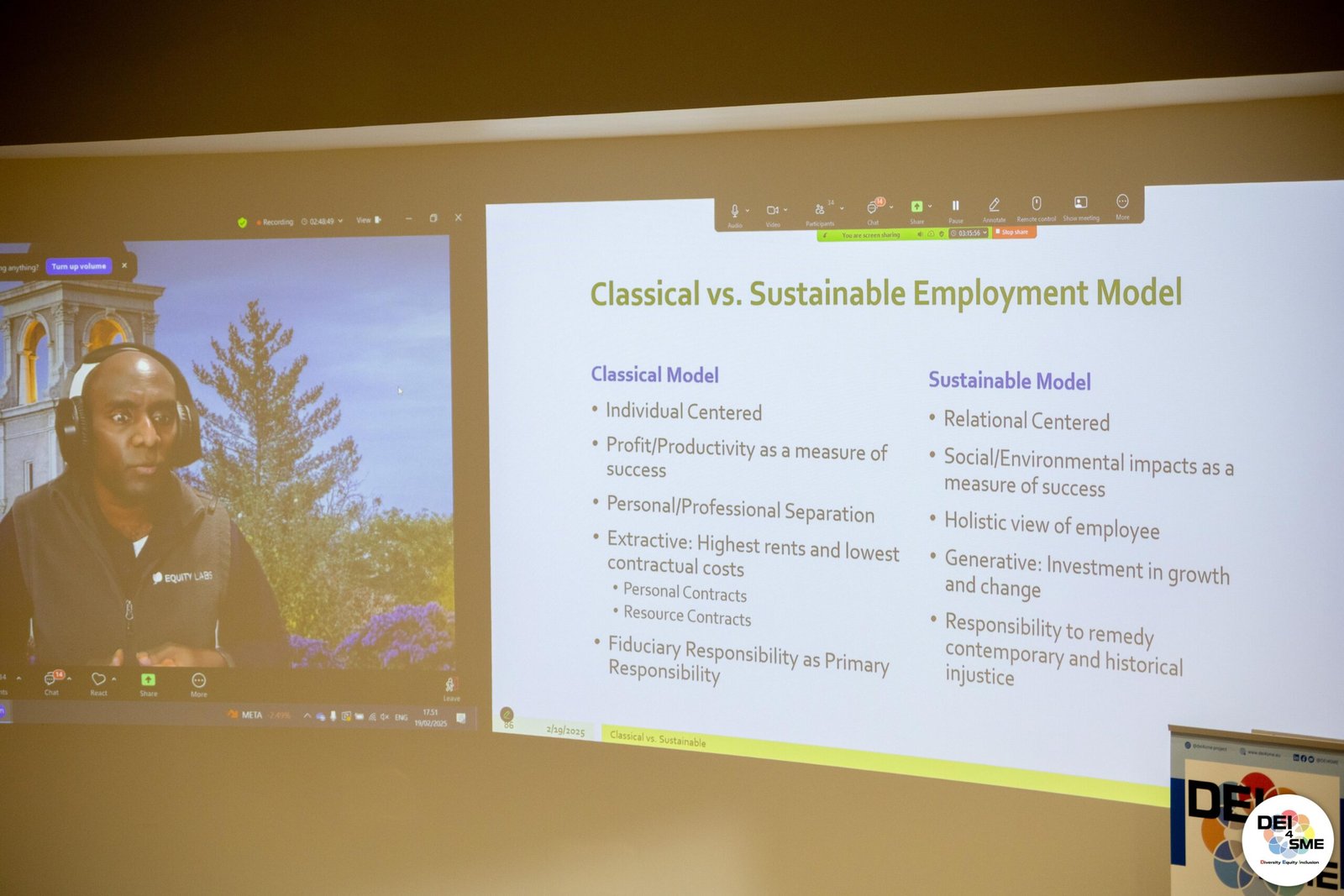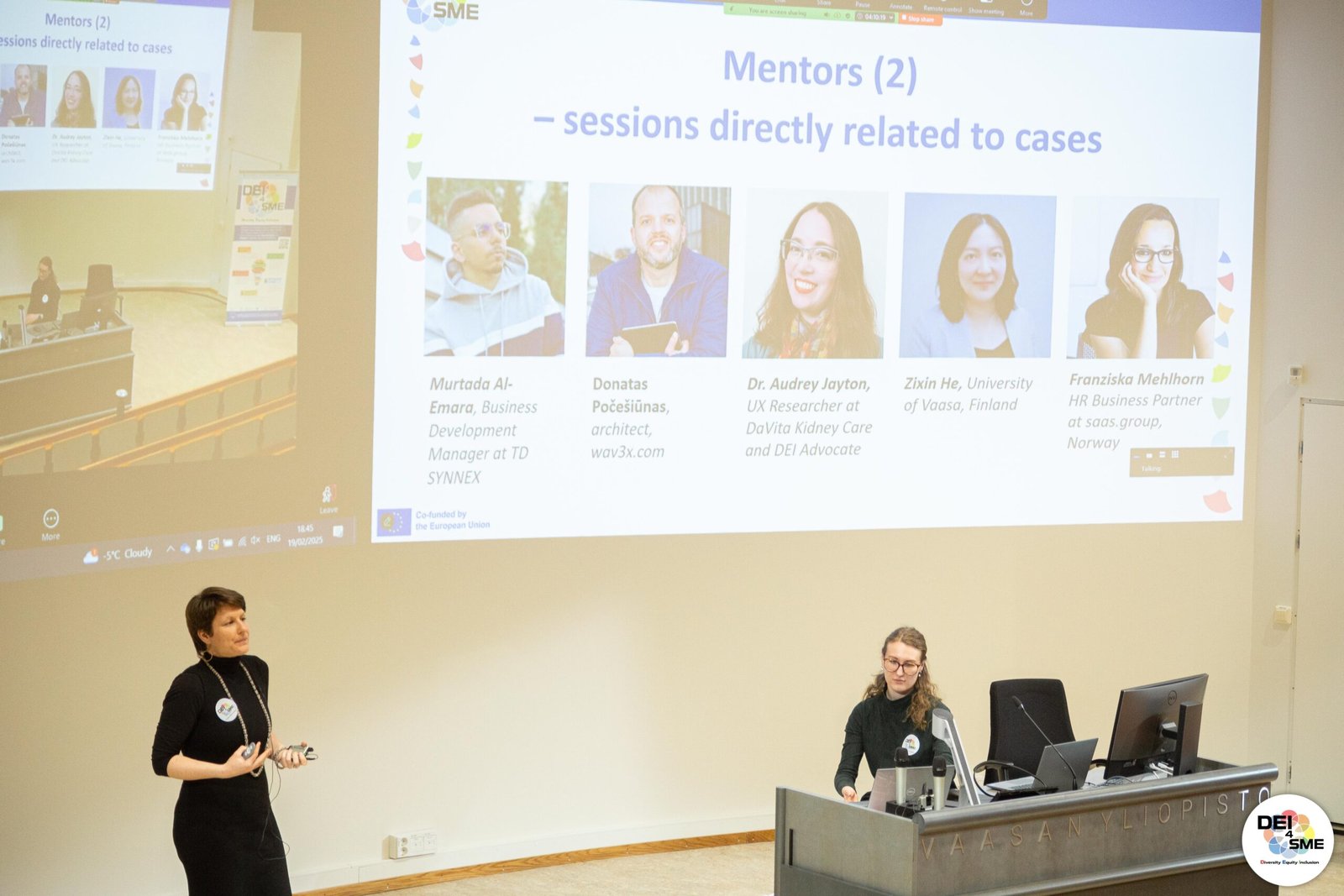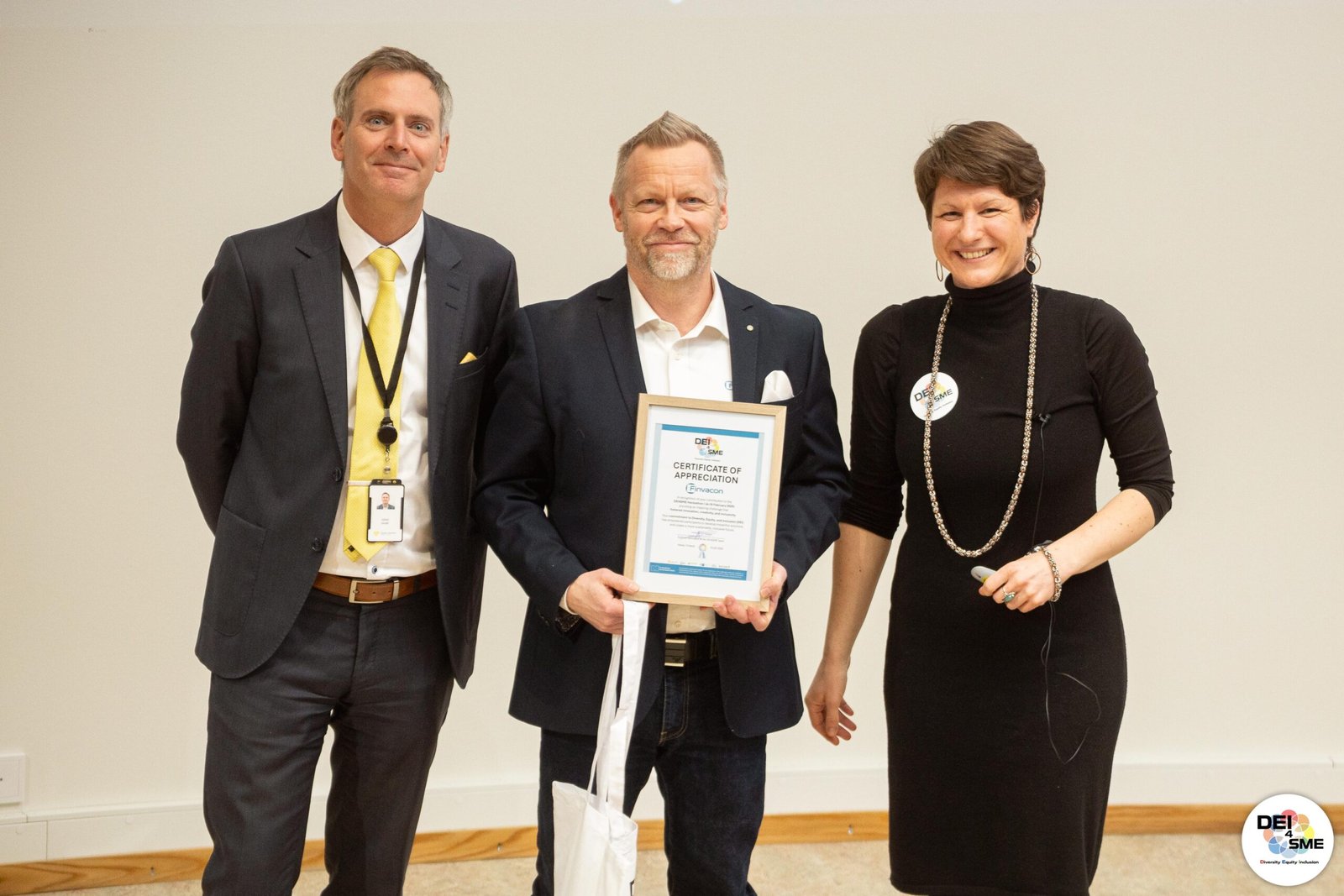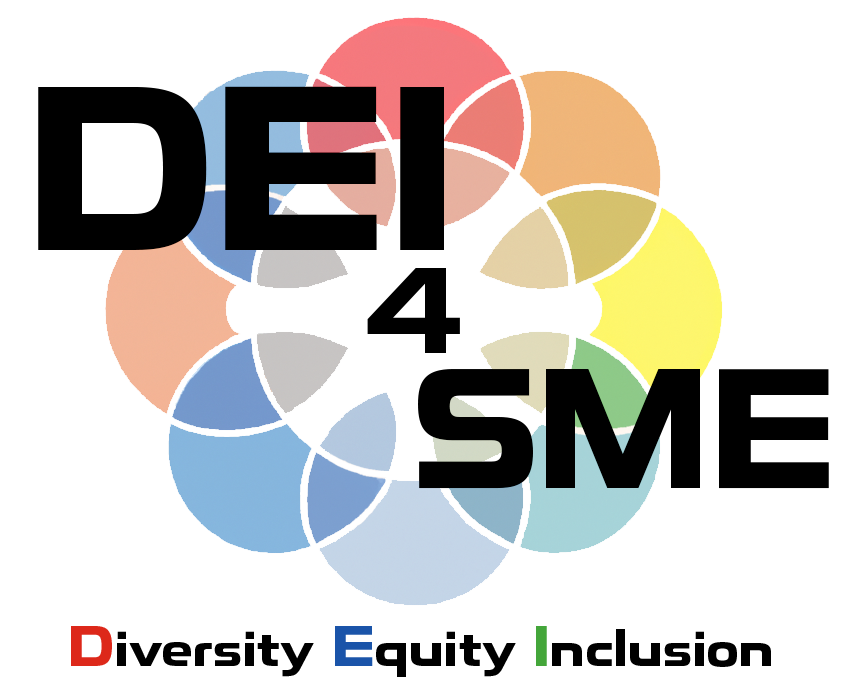DEI4SME Hackathon I sparks innovative collaboration between students, sustainability experts and companies to create inclusive business growth practices
Vaasa, Finland February 2025
The University of Vaasa together with international partners the R&D department Room466 of the Styrian Chamber of Commerce, Austria, and E.N.T.E.R., a European networking organisation, Austria, recently hosted the engaging DEI4SME Hackathon I. The hackathon united ten companies from Finland and Austria, nearly 200 students, and close to 30 business, education, and sustainability experts from around the globe with the aim to explore practical cases of diversity, equity, and inclusion (DEI) in smaller businesses (SMEs).
“DEI or Diversity (representation of various social identity groups), equity (providing resources according to the need), and inclusion (creating environment that offers appreciation for diverse needs, perspectives, and experiences) is an important area of social sustainability in business. It’s not only about having dedicated DEI programs as the one may think when reading the contemporary news. DEI is a central part of effective business management, and many firms are not aware how they lose customer access and new market entry opportunities when DEI issues are not considered strategically. In the hackathon, smaller firms brought real business issues they face and students, guided by outstanding mentors, had the opportunity to develop DEI best practices to solve these issues” – says Aušrinė Šilenskytė, Program Manager (Bachelor’s in IB) and DEI4SME Project leader.
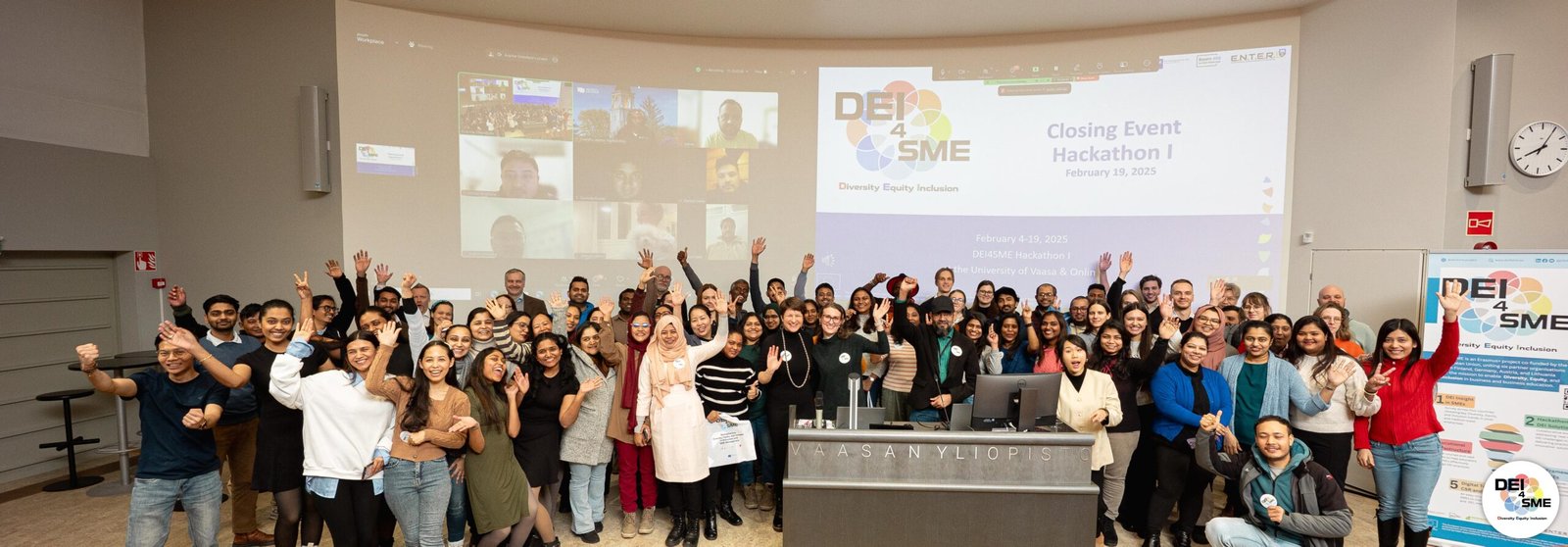
Fostering Innovations Through International Industry-Academia Collaboration in the DEI4SME Hackathon
The two-week global event, held both on the University of Vaasa campus and online, highlighted key DEI challenges that small businesses must address to remain sustainable and competitive. Firms’ challenges tasked students to explore DEI issues in firm's strategy creation, strategy implementation, product and service development, and human resource management processes. Diversity dimensions featured in the challenges were related to age, diverse abilities, disability, language, ethnic background, education, gender, and socio-economic differences.
Participating companies included Finvacon Ltd. (Finland), AddSearch (Finland), Foamit Group Oy in partnership with Superco HR (Finland), Amplon.io (Finland), Technology Centre Merinova Ltd. (Finland), DIMECC Ltd. (Finland), Hausmasters (Austria), T.I.P.S. Messtechnik GmbH (Austria), and Consulting4Future e.U. (Austria).
For example, a leading manufacturer in premium quality components for transformers and electric motors Finvacon Ltd. (Finland) was seeking to find ways to scale their social sustainability-focused business model internationally. DEI award-winning SME AddSearch (Finland) wanted to improve collaboration of culturally and linguistically diverse team in their fully remote workplace and create better digital search solutions for older people or those who do not have stable internet access. Foamit Group Oy in partnership with Superco HR (Finland) explored ways to implement effective whistle blowing practices to address regulatory requirements and go beyond them ensuring continuous improvement and ability to appreciate diverse perspectives for business development. Amplon.io (Finland) sought strategies to enhance accessibility of their SaaS platform for strategic management for colour blind users, since strategy implementation status in business is often followed by using traffic-light system or data-analytics-based visuals that are not readable for everyone.
In Europe, generational conflicts at work, upskilling as employees age, and knowledge sharing across the generations reflected in challenges brought by the cluster management company specialising in supporting the energy and electrification sectors in the Vaasa region Technology Centre Merinova Ltd. (Finland) and education provide from Austria. Efficiency concerns when diverse perspectives are considered were brought by DIMECC Ltd. (Finland). Opportunities and challenges when employing people with disability were explored by social enterprise Hausmasters (Austria) and a leading provider in the field of test hardware for microchip T.I.P.S. Messtechnik GmbH (Austria). Last but not least, Consulting4Future e.U. (Austria) asked students to investigate how Artificial Intelligence (AI) can be employed to develop effective upskilling training in SMEs, especially in the area of DEI skills in business.
The company challenges were presented in a public poster exhibition at the University of Vaasa and posters remain available for a virtual visit on the project’s pages (visit poster exhibition online).
Student teams collaborated closely with company representatives and sustainability experts to develop actionable solutions tailored to the specific needs of the participating firms. Challenges were not easy and while over 200 students registered for the event, 36 teams uniting 173 students completed the hackathon. Their newly developed solutions offered tangible benefits to the firms comprising some immediately implementable ideas or opening fresh avenues for long-term business improvements with the DEI.
DEI4SME Hackathon I to expand network, improve employability, and develop business skillset
The DEI4SME Hackathon benefited not only the companies but was a major tool for students who often lack work experience or come from ethnic and other minority groups to expand their network and develop skills needed to secure their employment or ability to develop business in Europe. Students studying in Finland and the USA walked away from the hackathon with practical skills, an understanding of the EU sustainability legal frameworks and reporting standards, hands-on teamwork experience, and expanded professional networks.
The hackathon featured 15 outstanding internationally-recognized mentors and four keynote speakers from Europe (including sustainability debates leading institutions, such as EFRAG) and the USA who shared insights, guidance, best practices, and newest information about the sustainability practices and legal frameworks. Students could visit 26 open sessions and learn from these professionals in an interactive manner. The sessions also included interactions with senior managers from the participating firms and personalized coaching on the process of solution development. When opening the hackathon Vice Rector Tanja Risikko highlighted the importance of social sustainability in business and governance and in the closing event Adam Smale, Dean of the School of Management, spoke about the transformations that Finland has undergone due to its openness to innovate through diversity and inclusion.
The prizes of the hackathon were directed to further enable growth and skill development of the participants. University of Vaasa and DEI4SME project has contributed LinkedIn Learning and Premium subscriptions for the three winning teams. Finvacon and CEO Kaj Sundén has offered an outstanding personalized coaching session to the first place winners and a number of practical items for second and third place winners. AddSearch and CEO Helena Rebane together with saas.group established special prizes to recognize innovative ideas and communication and provided to students training sessions with global HR professionals to enhance student CV and help them prepare for the interviews. Foamit Group and Tiina Partanen, Head of Sustainability and PMO, granted a handy souvenir set for active lifestyle to student team who balanced hard work with well-being best practices. Student teams who developed valuable solutions for the case company received case company’s special mentions and recognition certificates.
The solutions created by students have been reviewed by international evaluation committee as well as company representatives creating for them the possibility to present their ability to solve practical business process to different employers and international professionals. Company cases and student solutions will be further used to create a collection of teaching cases to be published and used for developing skillset to create more socially responsible future in Europe and beyond.
Managing diversity as a valuable resource
The success of the DEI4SME Hackathon I, already covered in some of the major news platforms internationally, showcased that diversity can be a valuable resource for business growth and success if managed wisely. Considering diverse needs of firm’s customers, business partners and employees goes beyond an establishment of formal programs for the DEI. Managing diversity if the same strategic management act, as managing any other resource in business.
Diversity, equity, and inclusion practiced by managers can enable firm’s internationalization, ability to serve customers better or motivate employees to commit to strategy or its implementation. Smaller businesses are particularly well-positioned to benefit from the DEI, because they can adopt DEI best practices without a need to make major organizational changes.
The hackathon and other activities within the DEI4SME project highlighted the critical role of collaborative efforts in advancing social sustainability and especially DEI within smaller business and the power DEI has when diversity is managed with equity and inclusion in mind. By adopting DEI best practices in strategic management, firms have the possibility to do better business, comply with the sustainability regulations within the EU, and supports the implementation of the United Nations' Sustainable Development Goals (SDGs) 8 (Decent Work and Economic Growth) and 10 (Reduced Inequalities) contributing to the enactment of global sustainability strategy.
About the DEI4SME Project
DEI4SME is an Erasmus+ project co-funded by the European Union. The project is led by the University of Vaasa and it brings together six partner organizations (Universities, Chambers of Commerce, Vocational Education centres, and SMEs) to enhance diversity, equity, and inclusion (DEI) in business and business education. The project focuses on creating a digital tool for planning, implementing, and monitoring corporate social responsibility, alongside educational materials shaping the ecosystem to equip higher education graduates with the skills to lead DEI initiatives in resource-constrained SMEs. This effort aims to establish a standardized EU framework for monitoring social responsibility and addressing various societal challenges. More information: uwasa.fi and https://dei4sme.eu/.
